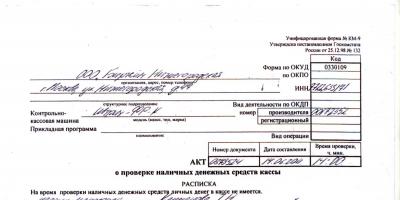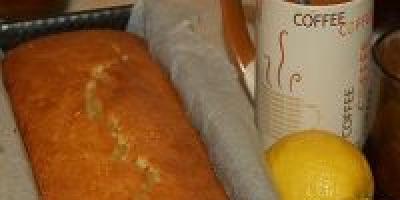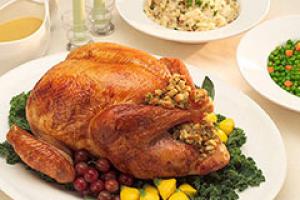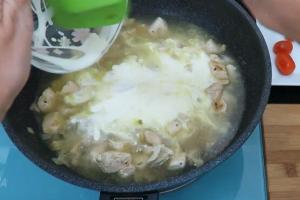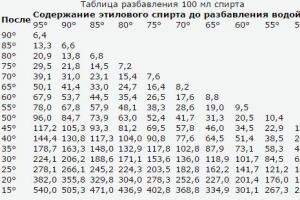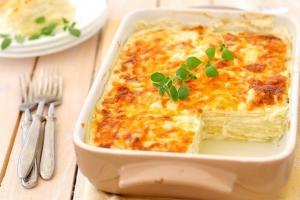In the photo we see metal gates painted black.
Choosing paint for metal products, many people are guided only by price and appearance, without thinking about why on the shelves construction stores, such a variety paint and varnish materials. But they are all radically different from each other, and in order not to repaint the metal every year, you need to know the basic selection criteria.
In this article we will tell you what is the best way to paint metal gates, and we will conduct a short comparative review various colors.

Paint for metal can be from any company, the main criteria for choosing it are its quality characteristics
Regardless of the manufacturer's brand, price or brand of metal paint, they all must have a certain set of qualities. So what indicators should you pay attention to when choosing?
There are quite a few important parameters; if you don’t have the time or desire to delve into the issue, you can entrust the choice of paint and the painting itself to a master. He will pick up necessary materials taking into account all the features.
If you want to choose a job yourself - Let's figure it out:
- Adhesion to metal. Paints for different surfaces May not be suitable for other materials. Therefore, the inscription “paint for metal” must be present.
- UV resistance. Since the topic of our article is painting iron gates, then resistance to sun rays should be the main selection criterion.
- Wear resistance.
- Water resistance. Modern paints perform not only a decorative function, but also a protective one.
- Durability.
- Easy to apply. Some types of paints can only be applied under special conditions and only with the help of sophisticated equipment. We will not describe such materials, but we must take into account that different colors, are applied in different ways.
- Decorative component. If this criterion were not important, the question is what to paint with iron gate I wouldn’t get up at all: we take gray primer and apply it. All.

Beautiful gates in bright colors are no longer uncommon
Advice! Regardless of what paint you chose, it is advisable to paint the gate with your own hands in a lying position so that no drips remain on the surface.
As a rule, all this data, as well as detailed instructions according to application, are indicated on the paint can, but, unfortunately, this information is not always reliable. Some manufacturers deliberately write false information in order to sell their product at a higher price.
Therefore, in this situation, it is better to give preference to a famous brand. Such manufacturers value their reputation and will not publish false information. Of course, the price of such paint will be slightly higher, but you get certain guarantees.
Oil based paints

Oil paints for metal work can also be used to paint other surfaces due to their good adhesion.
Oil paints were once the most popular material, but the point here is not the quality of the coating, but the fact that even 20-30 years ago, there was simply no alternative to these paints. Today they are used much less frequently, although they have a number of advantages, one of which, of course, is the affordable price.
PF paint

One of the most common types of paints on oil based. It has excellent adhesion to metal and easily tolerates contact with water.
Despite this, PF paint is far from ideal and here are just a few of its shortcomings:
- Long-term drying, which even in summer can last several days.
- A preliminary primer layer is required.
- Possible fading after 2-3 seasons.
- If the surface to be painted is poorly cleaned, it may begin to peel a few months after application.
This is far from full list, but even this is enough to consider other options.
Paint ML

Relatively new material based on drying oil. In essence, this is a modified and improved version of the PF, and as a result with higher quality characteristics:
- ML paint dries for a maximum of 24 hours at room temperature.
- Does not fade in the sun.
- Resistant to mechanical damage.
A significant disadvantage of this paint is the need to apply primer before painting, which means additional costs of both time and money.
Advice! Today on the shelves you can find ML paint, which says “enamel for rust,” but as experience shows, it is better to prime the surface, since the quality of the paint itself leaves much to be desired.
Special paints and nitro-based paints

Nitro enamels are paints based on chemical solvents, so they have a sharp, unpleasant odor. The main difference between nitro paints and oil paints is the drying speed. Some enamel hardens completely in just a few minutes, while others may take an hour at most.
And before we move on to describing the types of nitro enamels, we note that painting metal gates in closed and unventilated areas is strictly prohibited. The chemical components in the composition can cause significant harm to health, so you need to work with them either on the street or in a room equipped with a powerful forced exhaust hood.
NC

The lowest quality and short-lived paint in our entire review. We do not recommend working with her, but for the sake of fairness we could not help but mention her.
As a rule, NC paint is used for temporary painting of any products, or by unscrupulous manufacturers of metal structures. Mine appearance the coating will lose within a year, and after two years there will be no trace left of it.
Hammer paint

We see an example of what hammer paint looks like on metal surfaces
When wondering what to paint metal gates with, many people prefer this option. In fact, hammer enamel is an ideal ratio of price and quality.
It is maximally resistant to any type of influence, and does not lose external data throughout its entire service life, which, according to the manufacturers, is at least 25 years, but of course, subject to the rules for applying paint. Hammer enamel does not require a primer. It independently dissolves rust and adheres firmly to the surface.
It is impossible not to mention the decorative qualities. After application, this paint begins to spread over the surface and forms small potholes, reminiscent of marks from a blow with a blacksmith's hammer, hence the name of this paint.
A certain difficulty may arise when applying hammer paint, so before getting down to business, we recommend that you watch the video in this article, which will help you clearly understand all the intricacies of the process.
Forging paint WS-Plast

We deliberately left this paint for dessert, since it has no equal not only in our review, but also in the entire market of paints and varnishes. Needless to say, the price of this paint is very high, but in fact, it is worth the money.
Such a coating is not afraid of any impacts at all. Even hitting the surface with a hammer will not leave a mark on it.
Important! For forge paint it is necessary to cover it with primer of the same brand. If primer from another manufacturer is used, the quality of the coating is not guaranteed.
The consistency of this paint resembles liquid rubber, and has a corresponding chemical smell. Drying time is a maximum of two hours, even if subzero temperature environment.
The manufacturer guarantees the high quality of the coating for at least 50 years, but so much time has not passed since the appearance of this material, so no one yet knows the actual service life.
And in conclusion

To summarize all of the above, here is a small comparison table that will help you make your choice.
Note that all the paints in the table are in descending order of their price, from the most expensive forge enamel to the cheapest NC paint:
| Specifications | Paint brands | ||||
| Forge enamel | Hammer paint | ML | PF | NC | |
| Adhesion to metal | high | high | average | average | low |
| UV resistance | high | high | high | average | low |
| Resistance to mechanical damage | high | high | average | low | low |
| Durability | high | high | average | average | low |
| Water resistance | high | high | average | average | low |
| Ease of application | There are difficulties | There are difficulties | easily | easily | easily |
| Decorative qualities | high | high | high | high | low |
| Approximate drying time | No more than 2 hours | From an hour to three | Up to 24 hours | From a day to three | No more than an hour |

In the photograph we see examples of different types of paints and their colors.
Often, when writing an article, it is difficult to give any advice or draw conclusions, but not in this case. In our review there is a 100% leader - this is paint for metal gates WS-Plast. There is also an outsider - NC paint, but it is important to remember that the quality of the finished coating largely depends on the artist. Even the best quality paint can be applied so poorly that it won't last a year.
It is usually necessary to remove the loose layer of rust and peeling paint from forged products that have already been used, especially those that are located in the open air. For such cleaning, the most suitable tool is selected:
- Wire wire brush
- Coarse sandpaper
- Grinder
- If there are a lot of metal products (fence, ), then it would be more rational to purchase sandblasting machine. Sanding will save time and effort.
Now you need to brush off the dust and remaining sand and start degreasing.
Cleaning new forged products has its differences. Factory grease, grease and oil stains may remain on ferrous metal. They are washed off with a 5% solution of any SMS (synthetic detergent - washing powder) or removed with a solvent. Shiny and smooth metal is treated with sandpaper P-40 or higher, and dust is removed. Galvanized surfaces are washed with a stream of water, but aluminum and its alloys do not require preliminary cleaning - they are simply degreased immediately.
Methods for degreasing forged elements
- Hot water-soap solution (90°C) - to prevent the soap from curdling, first boil the water, then dissolve the grated laundry soap
- Solution caustic soda- also very hot
- Various solvents - acetone, isopropanol, 646, butyl acetate, etc. (before painting there should be no traces of solvent left on the metal)
When working with chemicals should be protected open areas body with gloves, masks, goggles and do not touch fat-free surfaces.
The traditional painting option includes several coating stages:
- Rust converter— after applying the composition it turns into a durable chemically neutral coating, enhancing the anti-corrosion effect of the primer
- Special primer composition— stops the formation of rust, isolates from moisture, gives high adhesion to metal and subsequent coating. Typically the primer has weak decorative properties and wear resistance. Although primer-enamels are produced “two in one” - corrosion protection plus an attractive appearance of the product. When choosing a primer, you should pay attention to the label: most of them are universal, but there are only for interior or only for exterior use.
- Paint for forged products(for metal) - decorative coating, which is applied over the primer layer and protects it from aggressive environmental influences: precipitation, sunlight, temperature changes. To enhance protection and extend the service life of paints, special varnishes are sometimes applied as an additional layer.
Modern developments in the field of paints and varnishes make it possible to combine the properties of all layers. For example, rust-converting substances are added to the soil, and anti-corrosion components are added to the paint. Thus, special forge paints not only give forged products expressiveness for many years, they have increased performance characteristics and protection against corrosion.
Painting – adds sophistication to durability.
On video: painted wrought iron railings
How to paint a gate if you ordered an untreated structure from a manufacturer or decided to renew corroded gates with a peeling coating? In the first case, everything is simple. It is enough to remove the dust and first apply a layer of primer.
Photo No. 1: procedure for painting gates with a spray gun
Let's talk in more detail about repainting metal sashes. From the article you will learn:
- how to clean and prime the surface;
- choose paint;
- apply a design to the gate using airbrush.
Preparatory work
As we have already said, you need to start work by cleaning the surface of dirt. Choose a method based on the condition of the material and budget. Unfortunately, if the metal is rusted to holes, no measures will save it. You will have to completely replace the doors, this is an excellent reason to buy sliding gates - comfortable, modern, practical.
Surface cleaning
Since the topcoat will lie evenly only on a clean, grease-free surface, you will need to first remove the traces:
- old paint;
- oils and rust;
- dirt and grease.
Budget cleaning method
To inexpensively remove old paint and dirt you will need:
- regular spray bottle;
- metal brush;
- sandpaper No. 60;
- white spirit or gasoline;
- rags.
You will spend 8–12 hours cleaning the sashes manually. The advantage is minimum costs. The procedure is as follows.
- Wash the gate with a stiff brush. Let the metal dry.
- Remove old peeling paint wire brush.
- Sand the uneven surfaces of the remaining coating with sandpaper.
- Degrease the surface with gasoline or white spirit.
Important! It is necessary to clean not only the doors from rust and traces of old paint, but also all fastening and locking elements, as well as the frame.
Mechanized cleaning of metal from rust
Iron gates can also be painted after a simpler, mechanized cleaning method. To work you will need one of the following tools.

Photo No. 2: for mechanical cleaning old paint use metal brushes
- Screwdriver with brush attachment. Easily copes with the task of removing old paint and traces of corrosion. The downside of the tool is that it operates on a battery. The screwdriver quickly discharges, you will have to wait until the next start.
- Grinder machine. Great alternative sandpaper. The cost of such a tool is small - from 2000 rubles. The equipment operates from the network.
- Grinder with a metal brush. Brass brush attachments are suitable for removing old paint. If we are talking about heavy dirt, choose a brush with intertwined threads. Wear gloves and a mask.
- Sandblasting. The most expensive and difficult option cleaning. To remove dirt and traces of the old coating, the gate is removed from its hinges. If you apply a layer of paint using technology to a previously cleaned surface, it will last up to 6 years.
Chemical cleaning
As a rule, chemical cleaning is not used separately. And really to do beautiful gate for a summer residence or country house, it is better to play it safe and remove the layer of old paint before exposing the sashes to the reagent. This way you will achieve maximum adhesion of the paint to the metal.
The ideal composition for removing rust is Hammerite paint and its analogues. Before application, degrease the surface with white spirit and wash the doors with acetone. It’s easy to check whether the metal is well degreased: attach thin paper to the sash. If a grease stain does not appear on the sheet, proceed to staining.
Rust neutralizer
Now we will describe how to use a chemical remover before finishing painting a product.

Photo No. 3: rust neutralizer “Ferum-3” (Ukraine)
- Apply the reagent to the surface cleaned with a wire brush. Use a remover with a gel-like consistency - it has better coverage.
- Cover the doors plastic film- the created greenhouse effect will speed up the process of paint removal.
- Wait half an hour and remove the old coating with a spatula. Reuse the reagent if necessary.
Choosing paint and primer for gates
Now we’ll tell you which primer is best to use and what paint to paint the gates with. It is important that the topcoat meets the following requirements:
- good covering ability;
- enhanced adhesion to metal;
- absence of components that oxidize iron;
- high moisture resistance;
- high elasticity;
- strength to mechanical stress.
Several types of metal paints on the market meet these requirements.
- Organosilicon enamel. It has high strength properties and elasticity. Resistant to moisture. Adheses well to metal. All organic enamels based on silicon have anti-corrosion characteristics.
- Alkyd enamel. Elastic and durable. Suitable for exterior finishing. Available in a wide range of colors.
- Hammer paint. It is convenient because the coating does not need to be cleaned or primed before application. Gives excellent water- and dirt-repellent effect. Apply from a spray gun under pressure.
- Acrylic enamel. With its help, you can beautifully paint any type of gate - swing, sectional, sliding. Withstands large temperature changes, is not afraid of moisture and chemical substances, resistant to atmospheric conditions.
Popular paint brands
Now let's look at the most popular brands of metal paints.

Primer for metal
As you remember, before applying the paint you will need another layer of primer, which will protect the surface from corrosion and provide better adhesion finishing coating with metal. To work you can use:
- ship red lead;
- silver coin;
- phosphating primer VL-02;
- metal lead;
- primer for metal GF-021.

Photo No. 6: 3 in 1 primer for metal
To apply the primer evenly, use a sprayer. After this, you can proceed to finishing processing.
Color selection
Since everyone has different tastes, the shade of the future gate depends only on the preferences of the garage owner. The most popular colors are green, burgundy, brick and blue colors. For ease of selection, we provide a palette of shades.

Photo No. 7: metal paint palette
Tools for staining
It is better to paint the gate using:
- spray gun - allows you to apply the coating in an even layer, without drips;
- roller - reduces work time, but leaves stripes that have to be rolled several times;
- brushes - increases paint consumption and complicates the procedure.
Sequence of work
We paint metal gates sequentially from top to bottom, following the following recommendations:
- cover surfaces that do not need to be painted with masking tape or tape;
- overlap one layer with another to hide transitions;
- wait for the layer to dry and paint over the missing areas;
- paint the hinges, grooves and latches with a thin brush;
- Apply a second coat after the first has completely dried (the recommended time is indicated on the paint packaging).
Important! Don't apply more paint than necessary. A thick layer reduces the strength properties of the material. The optimal number of layers is 2.
Temperature

Image No. 1: properties of enamels and varnishes
What happens if you ignore advice on temperature conditions? In 8 cases out of 10:
- the paint will swell;
- the color will turn out dull, with transitions;
- drips and sagging will appear.
How to beautifully paint a gate?
The airbrush method allows you to beautifully paint the gate. To work, you will need an airbrush - a device similar to a spray gun, but more functional.

Photo No. 8: this is what working with an airbrush looks like
Before drawing, stock up on a sketch and paints. Where can I find the sketch? You can choose an image online or design it yourself.
Sequence of work.
- Draw the contours of the future image according to the sketch. To do this, use paper templates.
- To convey the depth of the picture, alternate light and dark shades of paint.
- Work it out small parts.
- Cover the design with varnish to add shine and realism.
Examples of work performed using the airbrush method are presented below. Such designs can be applied to sliding, swing and sectional garage doors.

Photo No. 9: sports car on the garage door (airbrushing)

Photo No. 10: sea waves on the garage door (airbrushing)
No artistic talent? Here is an option that is available to everyone, regardless of skill level.

Photo #11: Canadian flag on the garage door
For the work, a simple spray gun and a paper stencil were used.
- 4.0 out of 5 based on 22 votes
Paint used in artistic forging
Since artistic forging products are made from steel profile, which tends to quickly become covered with rust, then it becomes necessary to apply protective coating.
Forged products have certain features, namely:
- - they are made of ordinary steel, which does not form an oxide film and therefore rusts;
- - they are used and installed both outdoors and indoors;
- - they have a large number of connecting joints between parts;
- - they are often made from a metal rod that does not have a smooth surface.
These features impose their own requirements on the choice of paint.
1. The paint must contain anti-corrosion substances that prevent rust. If interior forging is practically not affected by atmospheric phenomena, then various canopies, weather vanes, gates, fences and other exterior forging experience all the delights of the weather.
2. The paint must be sufficiently resistant to physical impact - i.e. do not peel off, do not fray or be scratched at the slightest touch.
3. For products located outdoors, the paint must be resistant to a wide range of temperatures - not crack at temperatures below -40 and not spread at temperatures above +40.
4. The paint must be UV resistant and retain its color in any case.
5. The paint must be non-toxic both when drying and when dry. If for products located outdoors, this parameter is not too important, then for forged products located at home, this is extremely important. The smell of paint causes an allergic reaction, dizziness and nausea in many people. In addition, painting of products most often occurs indoors, so for the safety of workers, it must have minimal toxicity in the liquid state. A
6. The paint should have good plasticity and be easy to apply. Many joints and welds must be well painted to avoid rust.
7. The paint should lie evenly on uneven surface.
To add originality to an artistic forged product, “patina” is often applied over the base color - a special coloring substance to give the forged products an antique effect. When applying “patina,” the base paint should not change its properties or lose color.
The process of painting artistic metal products comes down to several intermediate stages:
- cleaning (the best is sandblasting),
- degreasing,
- application protective film(phosphating, galvanizing or nickel plating)
- applying primer,
- applying the main paint composition the desired color.
Nowadays, many people reduce the process of painting products to two stages - stripping and applying paint. This became possible thanks to new dyeing technologies and new paint compositions. Some compositions allow you to apply paint even to a rusty surface, these include Hammerite alkyd-styrene paints.
As for the types of painting, they can be figuratively divided into 2 types:
- powder coating, which requires special cameras;
- painting with liquid paints, which are applied with conventional rollers, brushes or spray guns.
Powder coating requires baking the polymer in special ovens at high temperature within 148-180 degrees Celsius. And since the furnace has limited space, spraying bulky and bulky forged grates with polymer becomes problematic. But at the same time, a durable, even polymer layer is created on the forged product. This painting is good to use on large surfaces with a small number of joints and openwork elements, since otherwise the granules do not completely fill multi-joint units tightly, and the polymer film there will be thin and not very strong, which can lead to the protective coating rolling off in these places when installation
Liquid paints suitable for any surface, but their consumption is much higher, especially when painting large openwork through products (for example, a fence or “open” gate). Besides liquid paints more toxic. But at the same time, there is a guarantee that all joints and elements will be painted completely. In addition, some liquid paints, when hardened, also form a durable polymer film that is not inferior in quality to powder coating.
Conventionally, paints can be divided into the following:
1.Emulsion paints. This group includes all oil and alkyd paints.
Alkyd paints are paints based on organic solvents. The most common solvent for such paints is white spirit (purified kerosene). Alkyd paints withstand wet cleaning using traditional detergents. They also protect metal surfaces well from corrosion and wear, both indoors and outdoors. If you need to get a glossy finish, then again choose these paints. The use of alkyd paints is also justified when it is necessary to convey the full saturation of the selected color to a forged product. The paints of this group also have disadvantages. They take longer to dry than acrylic and are more toxic.
The best representatives of this family of paints are the Finnish paint Tikkurila.
Our company regularly uses a wide range of paints from this Finnish company.
2.Water-dispersed paints. Including acrylic paints.
The main advantage of such paints is low toxicity and fire safety.
The German company specially developed acrylic paint WS-Plast for painting metal surfaces. The resulting paint composition has excellent adhesion to many metal surfaces and solid polymers, due to which the service life of such coatings can reach 6-8 years or more. Most forging companies that produce premium forged products use this brand of paint to paint these products. If you need to get a matte surface, then you can’t find better acrylic paints. They say about WS-Plast acrylic paints that they highlight the skill of the blacksmith.
3.Nitro enamels.The main advantage of such paints is the speed of drying. But the disadvantages are also very significant - high toxicity and the need for ideal preparation of the metal surface before painting, which is very problematic for forging.
On Russian market There are many companies offering blacksmith paint with various properties, therefore, knowing what criteria paint for artistic forging should have, choosing the right one will not be difficult.

